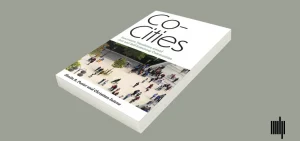Is user-generated content out?
Newsweek claims that the pendulum seems to be swinging back toward edited information vetted by professionals:
Some of the same entrepreneurs that funded the user-generated revolution are paying professionals to edit and produce online content.
In short, the expert is back. The revival comes amid mounting demand for a more reliable, bankable Web. “People are beginning to recognize that the world is too dangerous a place for faulty information,” says Charlotte Beal, a consumer strategist for the Minneapolis-based research firm Iconoculture. Beal adds that choice fatigue and fear of bad advice are creating a “perfect storm of demand for expert information.”





I think Newsweek’s thinly veiled derision of user-generated content has less to do with factual accuracy, and more to do with gadfly amateurs (and even unpaid experts) who challenge their credibility and have imposed a level of accountability some aren’t comfortable with.
Perhaps it help if Newsweek made the distinction between experts versus professionals in this article. An expert, by definition, knows what they are talking about. The professional, on the other hand, is paid to generate content. You can combine the two. But then you run the risk of getting a skewed perspective of someone with a skin in the game who might have an incentive to deceive or make omissions.
Beal’s quote: “People are beginning to recognize that the world is too dangerous a place for faulty information”. The same could be about magazines and consumer strategists who typically cater to someone or something other than their audience. Read this line from her company’s website and you might get an idea of what I mean; “We put the consumer at the center of your world, so you can strike at the center of theirs. Proximity is power. We’ll take you there.”
Questionable judgement and motivations have undermined my trust more than bad advice. The value of additional, or [any] outside perspective is often omitted in the professionals’ coverage of user-generated content. We’re just seeing the beginning, not the end.
Yes, I made some typos. “Perhaps it would help” and “The same could be said about”. Maybe if I had a better editing tool than a comment box, I could compete with pros. ;)
I agree with the implications of your post. I would rather have the advice of an expert, because inferior information is problematic no matter what the source.
The upside of user-generated content is the heightened level of scrutiny it places on all who generate it. In my opinion it actually aids in improving information literacy by exposing people to mere exisitence of another point of view.
Health Information is a perfect example of how egregious the pros and experts can be. Look at the recent decision by Pfizer to pull the deceptive Lipitor ads featuring Dr. Jarvik.
Usa Today
SourceWatch
What other choices do we have when the pros and experts are in on the deception?
[…] link via Putting People First addthis_url = […]